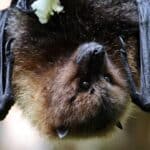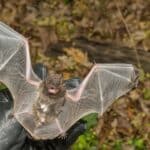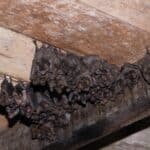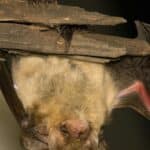Ever swatted away a mosquito and wished for a natural solution to these pesky intruders? You might’ve heard of bats being touted as mosquito terminators, but how much truth is there to this? Let’s investigate the nocturnal world of bats and their dietary habits.
On one hand, you’ve got studies showing that certain bat species do indeed include mosquitoes in their menu. On the other, there’s evidence suggesting these insects make up only a tiny fraction of a bat’s total grub. So, what’s the real scoop?
Do Bats Eat Mosquitoes?
Understanding Bat's Diet
Frequency and Quantity of Mosquito Intake by Bats
Several studies have explored the question: how many mosquitoes can bats eat? Numerically speaking, a bat can consume a lot. Certain bat species have been observed to eat up to 30% of their body weight in bugs an hour; a significant feat by any standard. But, when it comes to mosquitoes specifically, the narrative takes a slight twist.
An infamous 1960s study by Donald Griffin and colleagues lauds the ‘champion catcher’ Little Brown Bat, devouring an average of 10 mosquitoes a minute, for 15 minutes in a controlled lab environment. Striking as that is, this exorbitant number isn’t reflective of natural settings and has faced criticism for the lack of prey diversity, solely offering mosquitoes.
More recent studies shed a clearer light. While bats were found to consume mosquitoes, they were often less than 1% of a bat’s diet. The results of a 2016 study placed bats with breeding mosquitoes, concluding a 32% reduction in mosquito eggs across two months. Even when DNA sequencing in 2018 discovered mosquitoes in 72% of Little Brown Bat fecal samples, researchers exercised caution, stressing that this didn’t prove bats can meaningfully suppress mosquito populations.
Further research indicated that smaller bat species are more inclined to eat mosquitoes over larger ones, governed by caloric needs.
So, while bats eat mosquitoes, the frequency and quantity can be less than you might imagine. Bats may offer an assist in mosquito control, but in the grand scheme, they can’t be relied upon as the only solution.
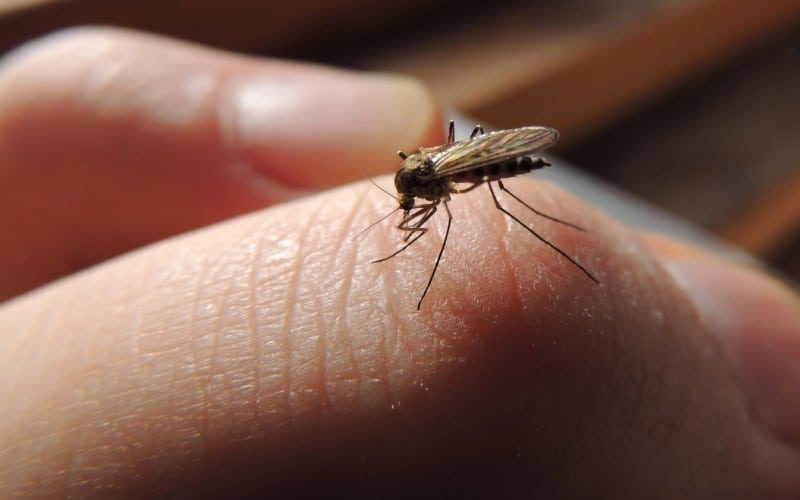
Relationship Between Bats and Mosquitoes
Impact of Bats on Mosquito Population
Do bats control mosquito populations effectively? A closer examination of the facts reveals the part bats play in a mosquito-filled environment. While the impact that bats have on mosquito populations can’t be understated, it’s not as immense as you might imagine.
Australian studies shed light on this matter, detecting 40 insect species in the feces of five local bat species. Mosquitoes were found only in two of these species’ feces. These bat species tend to be smaller ones, pointing towards a species-specific relationship between bats and their preferred meals.
Contrary to the claims of bats devouring 1,000 mosquitoes per hour, a more grounded reality unfolds from a study by the University of Wisconsin. While bats can eat mosquitoes, they tend not to dominate their diet. These researchers revealed that mosquitoes were found in 72% of little brown bat fecal samples, astonishingly higher than previous estimates .
Despite this, it doesn’t necessarily translate into bats being the silver bullet for mosquito issues. For instance, another study revealed that mosquito eggs were only reduced by 32% even in the presence of bats .
Factors Influencing Bat's Mosquito Consumption
Interestingly, factors like bat species and size significantly influence their mosquito consumption. Smaller bat species often resort to preying on mosquitoes, possibly due to the caloric requirements. Mosquitoes are often too small to satiate the appetite of larger bat species.
Also, the behavior of mosquitoes in the presence of bats highlights useful insights. For instance, mosquitoes exhibited no defensive behavior when approached by bats. This research suggests that developing devices that mimic bat sounds may not deter mosquitoes .
The Role of Bats in Environmental Ecosystems
Impact on Mosquito-Control Mechanisms
Bats, notorious for their insect-eating habit, seem to fall short when it comes to becoming meaningful mosquito-control agents. Does this mean they’re irrelevant to mosquito-control mechanisms? Far from it!
Bats might not be the prolific mosquito predators we once believed them to be, but they still play an essential role in managing a range of insect populations, mosquitoes included. To better understand this, consider your own diet. You probably have a variety of foods you enjoy, with some consumed more frequently than others. Bats are no different. They have their preferences, and, unfortunately, mosquitoes aren’t a top pick.
Take for instance, a 2016 research finding indicating that mosquitoes often comprise less than 1% of bat diets in the wild. Put into perspective; it’s apparent that bats don’t rely heavily on mosquitoes for nutrition. But, it’s critical to note that while mosquitoes might not represent a large chunk of bats’ food consumption, their consumption nonetheless contributes to mosquito control efforts to some degree.
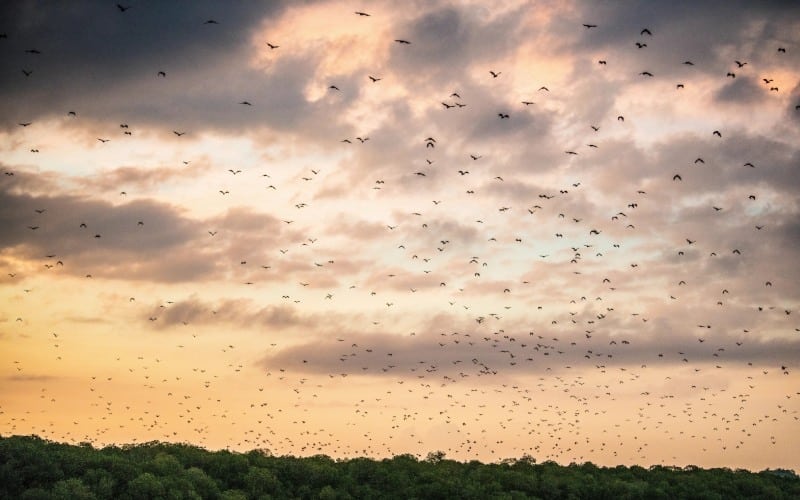
Balancing Ecosystem Health and Home Safety with Wildside Wildlife Removal
You may be surprised to learn that the relationship between bats and mosquitoes is more nuanced than it seems. While bats do consume mosquitoes, these insects are a minor part of their diet, and bats are not the mosquito-eating specialists we often envision. Despite this, bats play a vital role in mosquito control and are essential for a balanced ecosystem. Their contributions extend far beyond their dietary habits, underscoring their importance to our environment. However, while bats are beneficial to the ecosystem, their presence in or around your home may not be desirable. Wildside Wildlife Removal can help manage and remove bats safely, ensuring that both your home and the bats are treated with respect.
Robert Liam Donnell, owner of Wildside Wildlife Removal and Prevention LTD, is a renowned figure in the wildlife removal industry with over eight years of experience. His company, celebrated for its ethical approach, is highly rated on platforms like threebestrated.com. Starting his career at 22, Robert has grown his business into a trusted brand, known for honest and effective wildlife solutions. He has also contributed to public awareness through a radio interview on AM900, discussing wildlife management nuances. An avid skier, golfer, and nature enthusiast, Robert’s personal interests complement his professional dedication. His achievements include high Google ratings for his new business, reflecting his commitment to customer satisfaction and ethical practices. Robert’s advice for success in this field includes persistence, honesty, and prioritizing customer needs. Discover more about his work at Wildside Wildlife Removal, where his passion for wildlife and customer care is evident in every service.


